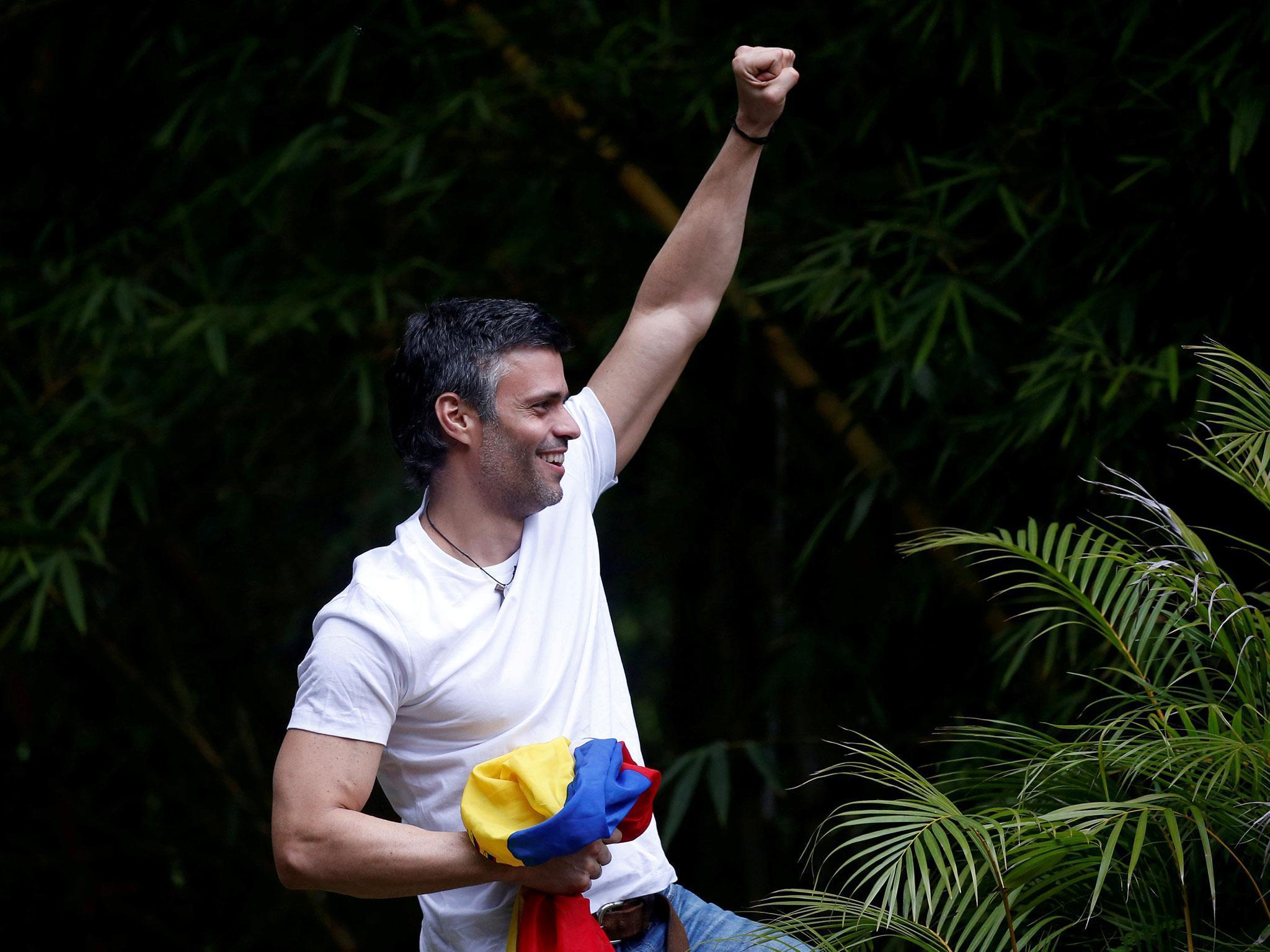Venezuela opposition leaders 'taken from their homes', family members say
Family says they are holding President Nicolas Maduro responsible for the fate of the two men
Your support helps us to tell the story
From reproductive rights to climate change to Big Tech, The Independent is on the ground when the story is developing. Whether it's investigating the financials of Elon Musk's pro-Trump PAC or producing our latest documentary, 'The A Word', which shines a light on the American women fighting for reproductive rights, we know how important it is to parse out the facts from the messaging.
At such a critical moment in US history, we need reporters on the ground. Your donation allows us to keep sending journalists to speak to both sides of the story.
The Independent is trusted by Americans across the entire political spectrum. And unlike many other quality news outlets, we choose not to lock Americans out of our reporting and analysis with paywalls. We believe quality journalism should be available to everyone, paid for by those who can afford it.
Your support makes all the difference.Two Venezuelan opposition leaders have been taken from their homes, family members have said.
Leopoldo Lopez and Antonio Ledezma were serving house arrest when they were taken, family members said on Twitter.
The wife of Mr Lopez and the daughter of Mr Ledezma said they were holding President Nicolas Maduro responsible for the fate of the two men.
Venezuela’s Supreme Court said it had revoked house arrest measures granted the opposition leaders and put them back in jail because they were planning to flee.
In recent days, both leaders have called on Venezuelans to join protests against Mr Maduro over the creation of an all-powerful legislative body called the constitutional assembly, which was elected on Sunday.
“12:27 in the morning: the moment when the dictatorship kidnaps Leopoldo at my house,” Mr Lopez’s wife Lilian Tintori wrote on Twitter.
She included a link to a video of what appears to be Mr Lopez being led into a vehicle emblazoned with the word Sebin, Venezuela’s intelligence agency.
Mr Lopez was granted house arrest in July following three years in prison for his role in anti-government street protests in 2014. His release was considered a major breakthrough in the country’s political standoff.
His lawyer, Juan Gutierrez, wrote on Twitter that “there is no legal justification to revoke the house arrest measure”.
Mr Ledezma was granted house arrest in 2015 after being imprisoned on charges of leading a coup against Mr Maduro. Vanessa Ledezma posted a similar video of Mr Ledezma.

Mr Maduro brushed off new US sanctions on him and condemnation at home and abroad of the newly chosen constitutional assembly, saying the vote has given him a popular mandate to radically overhaul Venezuela’s political system.
He said he had no intention of deviating from his plans to rewrite the constitution and go after a string of enemies, from independent Venezuelan news channels to gunmen he claimed were sent by neighbouring Colombia to disrupt the vote as part of an international conspiracy led by the man he calls “Emperor Donald Trump”.
“They don’t intimidate me. The threats and sanctions of the empire don’t intimidate me for a moment,” Mr Maduro said on national television.
“I don’t listen to orders from the empire, not now or ever ... Bring on more sanctions, Donald Trump.”
The sanctions came after electoral authorities said more than eight million people voted on Sunday to create a constitutional assembly endowing Mr Maduro’s ruling party with virtually unlimited powers – a turnout doubted by independent analysts, while the election was labelled illegitimate by leaders across the Americas and Europe.
The constituent assembly will have the task of rewriting the country’s constitution and will have powers above and beyond other state institutions, including the opposition-controlled congress.

Mr Maduro has said the new assembly will begin to govern within a week.
Among other measures, he said he would use the assembly’s powers to bar opposition candidates from running in gubernatorial elections in December unless they sit with his party to negotiate an end to hostilities which have generated four months of protests that have killed at least 120 and wounded nearly 2,000.
Mr Maduro called the constitutional assembly in May after a month of protests against his government, which has overseen Venezuela’s descent into a devastating crisis during its four years in power.
Due to plunging oil prices and widespread corruption and mismanagement, Venezuela’s inflation and homicide rates are among the world’s highest, and widespread shortages of food and medicine have citizens dying of preventable illnesses and rooting through trash to feed themselves.
The president of the opposition-led National Assembly, Julio Borges, told Venezuelan news channel Globovision that Mr Maduro’s foes would continue protesting until they won free elections and a change of government.
He said the vote gave Mr Maduro “less legitimacy, less credibility, less popular support and less ability to govern.”
Additional reporting by Reuters

Join our commenting forum
Join thought-provoking conversations, follow other Independent readers and see their replies
Comments